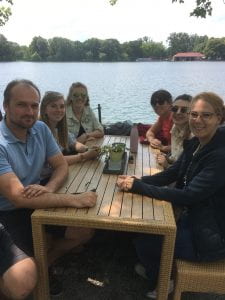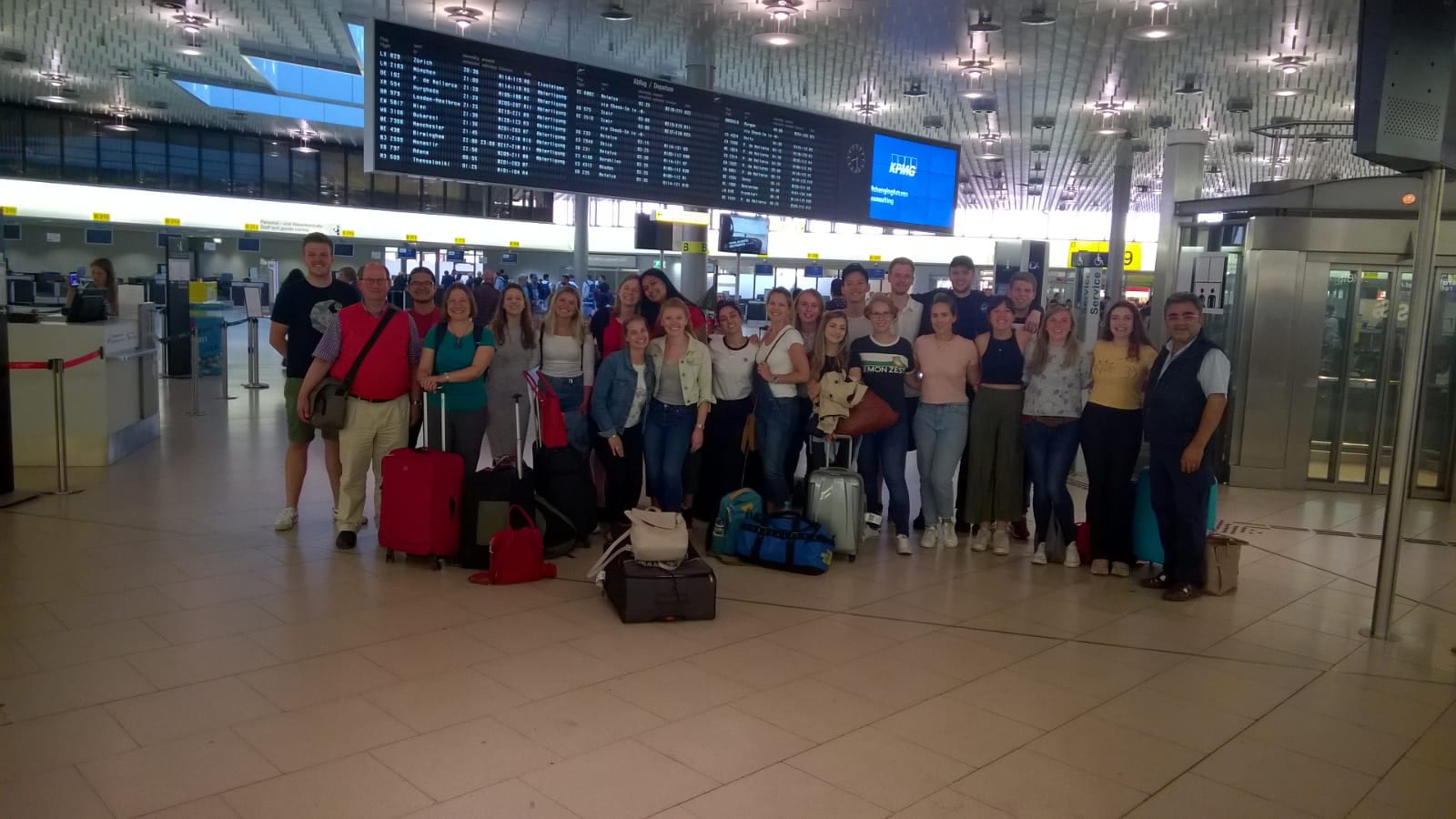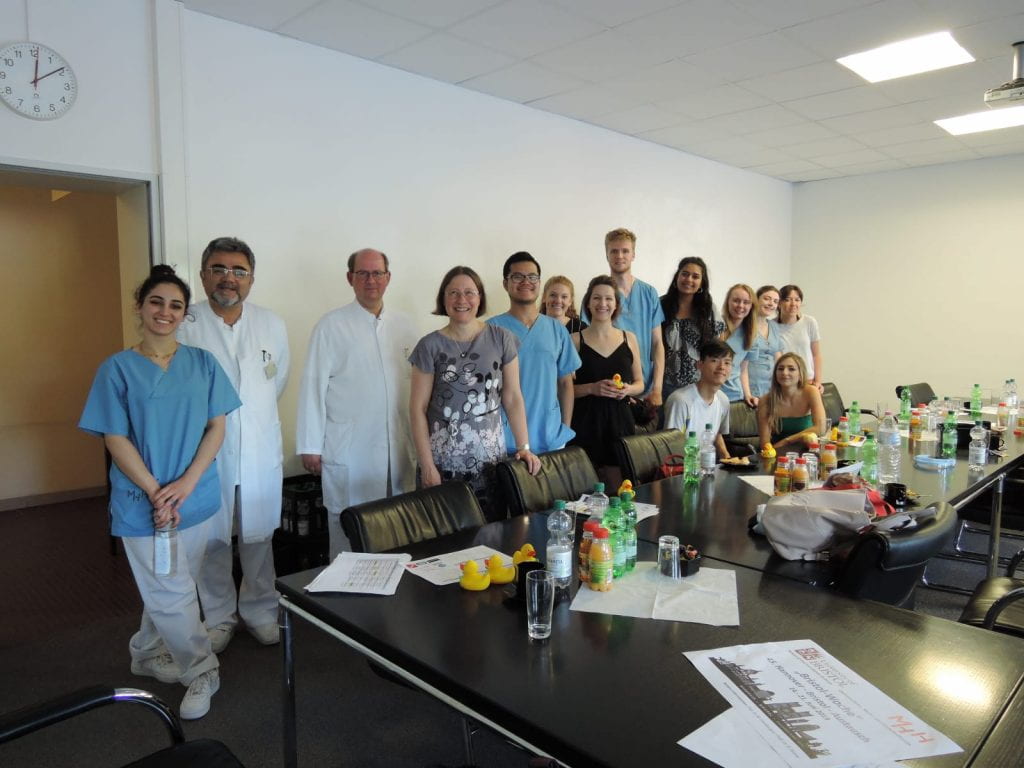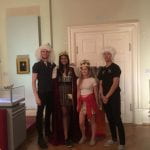Friday the 14th of June marked the beginning of the annual Bristol-Hanover exchange. On its 45th year, eleven students took to Germany to expand their scope of dentistry, experience differences in European healthcare, and understand our long-standing relationship with our German counterparts.
 How Hanover and Bristol became an unlikely pairing demands a talk of its own, one that we received in the ‘New Town Hall’ on the first full day, alongside a ‘photo-safari’ and dinner. With additional visits to Hamburg and Celle, it became clear that the two countries are closely intertwined by not just our exchange, but also Britain’s German monarchs. Yes, Hanover was an academic exchange, but to focus just on the dental aspect of the exchange would be akin to applying etch onto enamel; just scratching the surface. Needless to say, we were surprised with Lower Saxony’s history, landmarks, and schnitzel.
How Hanover and Bristol became an unlikely pairing demands a talk of its own, one that we received in the ‘New Town Hall’ on the first full day, alongside a ‘photo-safari’ and dinner. With additional visits to Hamburg and Celle, it became clear that the two countries are closely intertwined by not just our exchange, but also Britain’s German monarchs. Yes, Hanover was an academic exchange, but to focus just on the dental aspect of the exchange would be akin to applying etch onto enamel; just scratching the surface. Needless to say, we were surprised with Lower Saxony’s history, landmarks, and schnitzel.
As we approached the working week, we would soon understand the cliché: ‘German efficiency’. Lectures on various dental disciplines were coupled with a schedule designed to ensure each student shadowed every specialisation, from maxillofacial surgery to prosthetics. Each rotation provided something different to our standard practices in university. An example of one such variation was the concept of telescopic crowns and prosthesis. The technique, which provides brilliant denture retention but favours more invasive preparations, was an eye-opening insight into the attitudes to clinical care, and a segue into the insurance-based healthcare structure so common in Europe.
 There was plenty of time to interact with undergraduate dental students as well as former exchange participants, allowing us to witness the lasting tradition of the exchange and the differences in course structure between us. We were particularly impressed with the high standard of work and care between students and staff when invited to observe clinical sessions. The tour of our hosts’ workplace and work-ethic left us with many things to envy: their scrubs (which were washed and kept in hospital), the temperature of their changing rooms, their crown-producing CAD-CAM technology, their canteen, and their lower university fees. Despite this, we often heard how previous exchange students preferred our facilities in Bristol – a testament of both dental institutions’ good work.
There was plenty of time to interact with undergraduate dental students as well as former exchange participants, allowing us to witness the lasting tradition of the exchange and the differences in course structure between us. We were particularly impressed with the high standard of work and care between students and staff when invited to observe clinical sessions. The tour of our hosts’ workplace and work-ethic left us with many things to envy: their scrubs (which were washed and kept in hospital), the temperature of their changing rooms, their crown-producing CAD-CAM technology, their canteen, and their lower university fees. Despite this, we often heard how previous exchange students preferred our facilities in Bristol – a testament of both dental institutions’ good work.
Needless to say, our week in Germany would not have been such a wonderful experience without Hanover’s welcoming students and hosts. We would like to thank Professor Eisenberger, Professor Günay, and the staff at Hanover Dental Hospital who taught us a great deal, took care of us, and planned an excellent itinerary. We would also like to thank Dr. Angela Hague for her tireless organisation and supervision during our very successful exchange.
By the end of the exchange we had learnt new words, new dentistry, and made new friends from a cacophony of sounds and experiences. We ran through Hamburg, took a plethora of photos, and watched the price at DAX fall as the value of camaraderie rose. We could not have anticipated the week to be so invaluable and enjoyable. The bar has been set very high. We hope to repay our hosts with the same hospitality in the coming academic year. Though we left Hanover tired, and one of us teary-eyed, I feel I speak on behalf of all the participants when I say we would happily go again.





